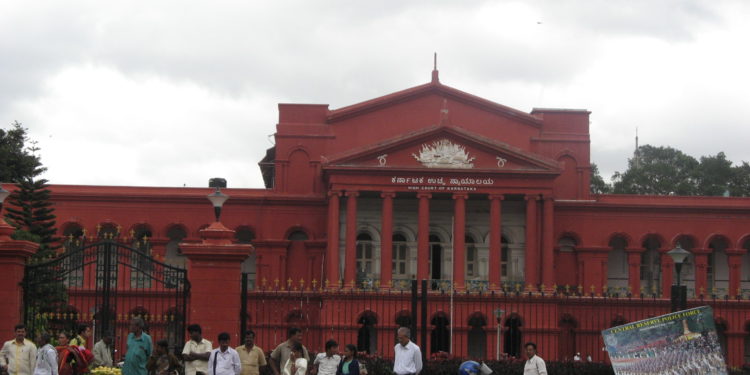Karnataka HC dismisses ICC probe as “faulty”: IISc professor absolved of sexual harassment

The Karnataka High Court has set aside the punitive action taken by the Indian Institute of Science (IISc), Bengaluru against a professor accused of sexual harassment by a student at the Institute. Apart from losing one of its senior faculty, the IISc faced an additional blow, the High Court directed the authorities concerned to reassess the redressal mechanism of the institute’s ICC and conduct training on POSH for it’s ICC members.
Factual Background
In November 2016, a PhD student at the Indian Institute of Science lodged a complaint of sexual harassment against Giridhar Madras, a senior faculty of the institute. The plaint accused Madras of making sexually coloured remarks and repeatedly calling her at night. The probe continued for nearly two years, and in October 2018, the ICC found him guilty of the accusations mentioned in the plaint. The ICC ordered Madras to go on compulsory retirement as a penalty for his conduct.
10 months following the order, Madras filed an appeal with the Karnataka High Court, challenging the inquiry report and the order issued against him by the ICC.His broad contentions were as follows :
1. that the order of compulsory retirement was given without a show-cause notice
2. that the inquiry report was based on “perceptions” rather than solid evidence.
3. that by revealing his name to the media, the ICC had not only prejudiced his reputation but also violated section 16 of the Sexual Harassment at Workplace (Prevention, Prohibition and Redressal) Act, which mandates non-disclosure of identity.
The Verdict
Justice B.P. Bajanthri allowed the petition, finding ration in all three contentions raised by the accused. The judge observed that before imposing a harsh penalty as compulsory retirement, the authorities concerned should have observed the appropriate procedure as prescribed by the Central Civil Services (Classification, Control, and Appeal) Rules, 1965 and the POSH Rules, 2013. Said procedure consisted of providing a copy of the plaint, constituting the Committee as mandated by the POSH Act, and conducting the inquiry in a proper manner. Since the ICC had not followed the required steps before issuing disciplinary action, its order was held as invalid. The court also found that the director and members of the inquiry committee had given statements to the press during the course of the proceedings. This violated section 16 of the POSH Act and further affected Madras’s chances of further employment.
In light of the above reasoning, the final verdict delivered by the judge was :
“Due to lapses on the part of the Inquiry Committee and the Disciplinary Authority, the whole proceedings are vitiated till imposition of penalty.”
The court ended its statement by directing the central government to conduct a refresher training on POSH for the ICC members as well as the Disciplinary Authority. This direction was made to avoid further procedural non-compliance of the POSH Act guidelines for conducting inquiry and imposing a penalty.
Was the HC right in its decision?
Section 13 of the POSH Act requires the Internal/ Local Complaints Committee to provide the report of its findings to the employer of the institute, which should subsequently be made available to the concerned parties, within 10 days from the date of completion of the inquiry. This provision was included in the Act so that if either party is dissatisfied with the findings of the ICC, they can appeal against the same. Therefore, the accused, being a party to the complaint, could not be denied an appeal to the High Court, if he was dissatisfied with the method of inquiry and the penalty levied.
The Karnataka High Court was not wrong in its verdict either. The ICC proceedings are not immune to deficiencies, and a higher authority is required to keep a check on the functioning of the Committee. Allowing appeal against ICC orders thus increases their accountability, and creates responsibility to conduct the inquiry as per the necessary statutory framework. Merely constituting an ICC is not the end game to handle sexual harassment cases. Training on POSH to ICC members is equally important. We at Ungender provide training on POSH to ICC members through both online and offline mode.
Read our insights about diversity, legal updates and industry knowledge on workplace inclusion at Ungender Insights. Visit our Blog.
Sign up to stay up-to-date with our free e-mail newsletter.
The above insights are a product of our learning from our advisory work at Ungender. Our Team specialises in advising workplaces on gender centric laws.
or email us at contact@ungender.in




